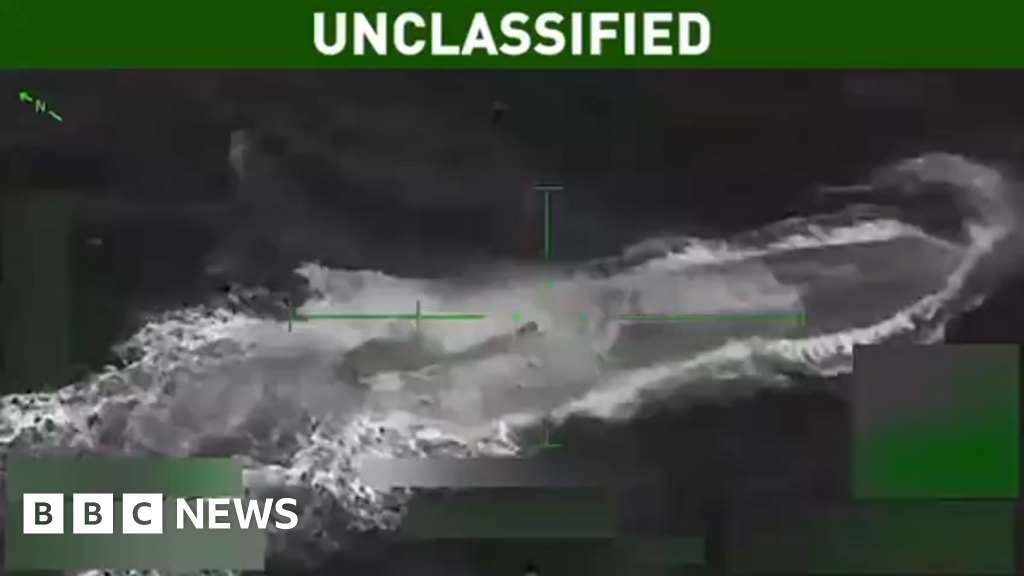
Ecuador rescues survivor of US strike on Caribbean ‘drug sub’

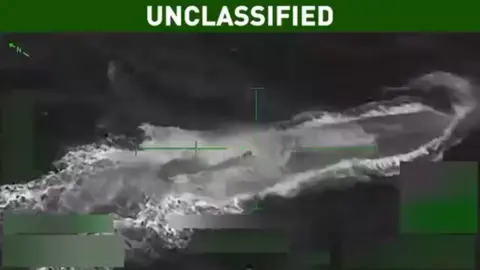 @realDonaldTrump/Truth Social
@realDonaldTrump/Truth SocialEcuador has released a survivor of a US attack on a submarine accused of drug smuggling in the Caribbean.
After US military forces detained an Ecuadorian citizen along with a Colombian citizen, they attacked the submarine carrying the two. US President Donald Trump said he would be returned to his country of origin for “detention and prosecution”.
But Ecuador’s attorney general’s office said in a statement that the Ecuadorian survivor “could not be detained” because “there was no report of a crime brought to the attention of this institution”.
The US has carried out several attacks on drug-trafficking vessels in the region.
Ecuadorian authorities had previously identified one of the survivors of Thursday’s strike as Andres Fernando Tufino.
He and a Colombian man, identified as 34-year-old Jason Obando Perez, are the first two survivors of one of the raids carried out in the Caribbean as part of a US anti-narcotics operation.
Two other men in the semi-submersible were killed in the attack, according to Trump.
The US military has said at least 32 people have been killed in at least seven separate attacks since early September.
Experts have questioned the legality of the attacks, saying they violate international law.
But the Trump administration has insisted it is targeting “narco-terrorists”.
Asked by reporters at the White House on Friday about the two survivors, Trump said they had boarded a “drug-carrying submarine designed specifically for transporting large amounts of drugs.”
“This was not a group of innocent people,” he added. “I don’t know many people with submarines, and it was an attack on a drug-carrying, loaded submarine.”
The US President, in a post on his Truth social account, alleged that the ship was carrying “large amounts of fentanyl and other illegal narcotics”.
Experts on drug trafficking have pointed out that fentanyl enters the U.S. primarily from Mexico and not from countries bordering the southern Caribbean, where the U.S. is stationed.
About 10,000 US troops, as well as dozens of military aircraft and ships, have been deployed to the Caribbean as part of the operation.
Trump also posted a 30-second video that shows the semi-submersible in choppy water before being hit by at least one projectile.
The two were rescued by a US military helicopter and later flown to a US warship in the Caribbean before being sent back.
The Ecuadorian survivor was in good health, according to an unnamed official quoted by The Associated Press.
The AP also reported that it has seen a document from the Ecuadorian government that states “there is no evidence or indication that would allow prosecutors or judicial authorities to determine” that Tufino violated any existing laws in Ecuadorian territory.
The Colombian survivor arrived in his home country “sedated, medicated and breathing with the help of a ventilator, with a brain injury,” according to Colombia’s interior minister.
He is being treated at a hospital in the capital Bogota, local media said.
The minister, Armando Benedetti, said the man was “on a ship full of cocaine and this is a crime in our country”.
U.S. deployments in the Caribbean are primarily targeting ships leaving Venezuela, U.S. officials said.
Trump has accused his Venezuelan counterpart Nicolas Maduro of leading a drug-trafficking group called the Cartel of Sun.
Maduro has denied the allegations and says the operation is aimed at ousting him from power.
The Venezuelan leader, whose re-election last year was not recognized by the US and several other nations, has appealed directly to Trump saying he wants “peace”.
But the US government is increasing pressure on Maduro, with Trump confirming last week that he had given the go-ahead for the CIA to conduct covert operations in Venezuela.
US officials have said that previous attacks on “narco-boats” had targeted the Tren de Aragua gang, based in Venezuela.
But as more boats have been hit, questions are being raised about the identity of those on board.
The US accused Colombian President Gustavo Petro of attacking a ship in “Colombian territorial waters” in September, saying the attack was “assassination”.
In response, Trump called Petro “an illegal drug leader” who “strongly promoted large-scale drug production, large and small, throughout Colombia”.
He also said the US would no longer aid Colombia and threatened to impose tariffs on Colombian goods.
Media in Trinidad and Tobago have also pressed the government of the twin islands to investigate reports that two of its citizens were killed in an attack.
However, the government of Trinidad and Tobago on Tuesday expressed “strong support for the ongoing military intervention of the United States of America in the region”.
“These operations aimed at combating narco and human trafficking and other forms of transnational crime ultimately aim to make the region a true ‘Zone of Peace’ where all citizens can live and work in a realistic, safe environment,” the foreign ministry said in a statement.
Additional reporting by BBC News Mundo
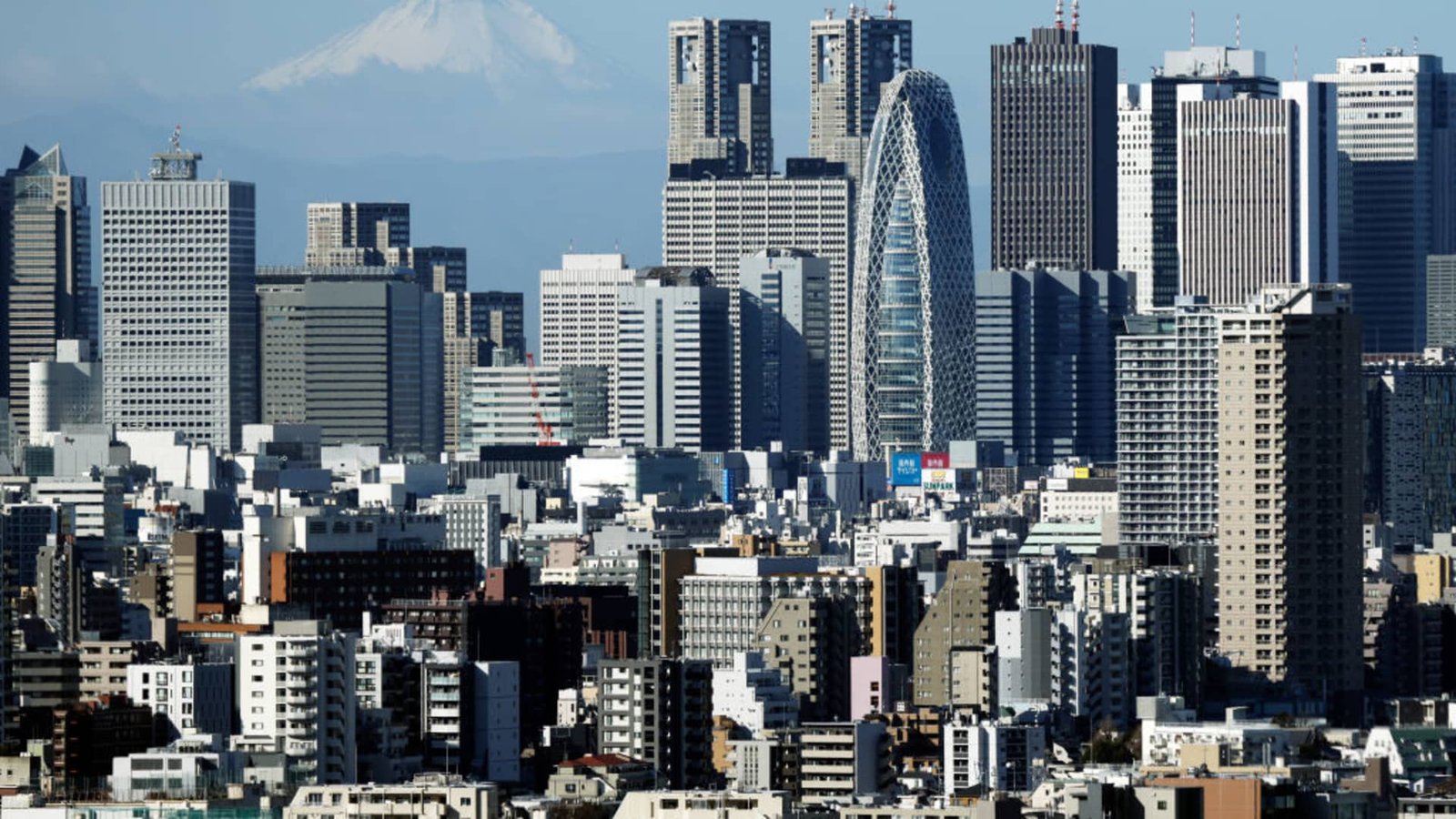
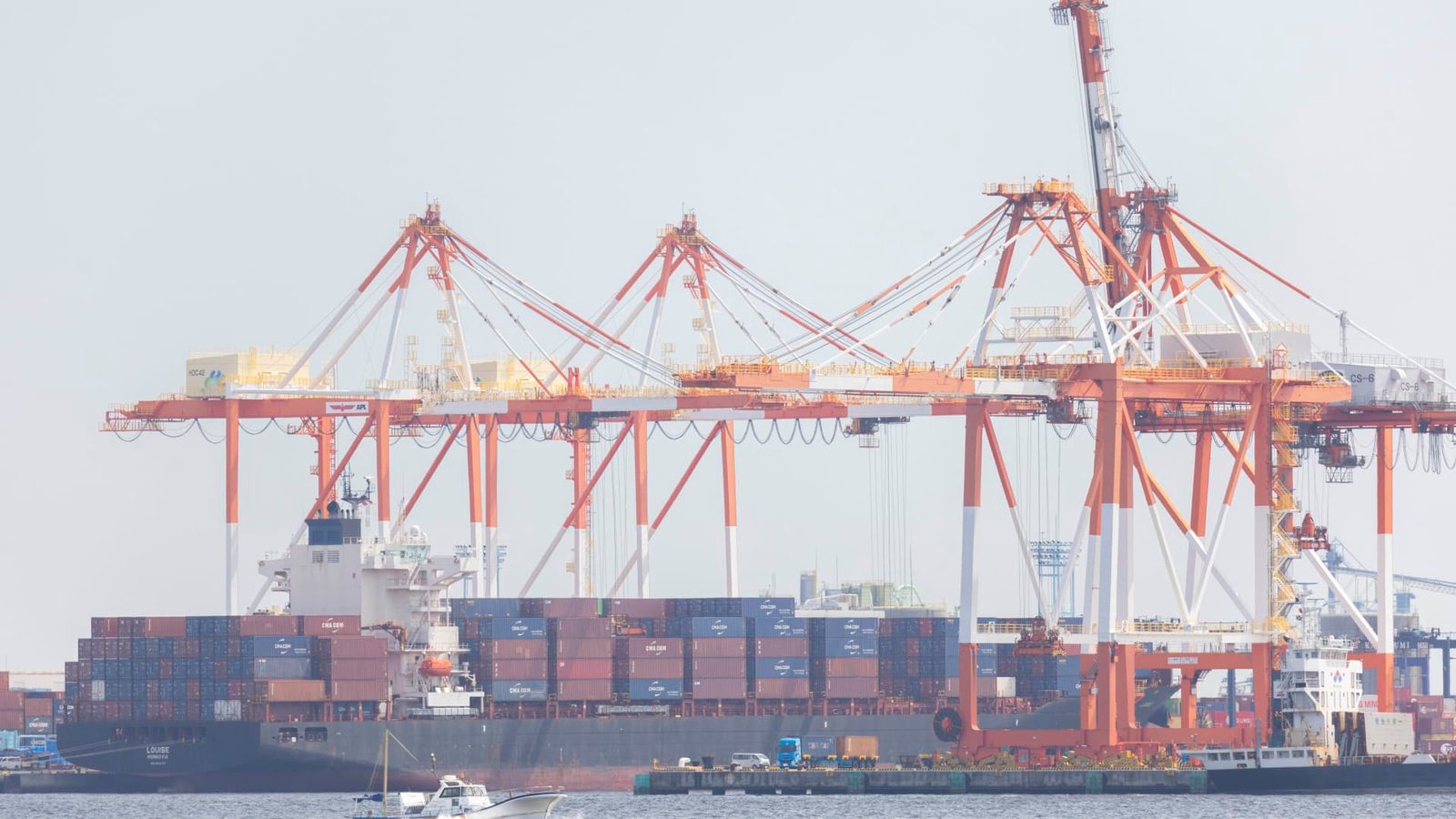


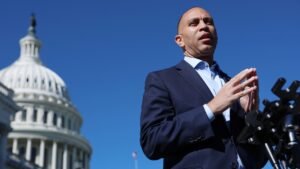
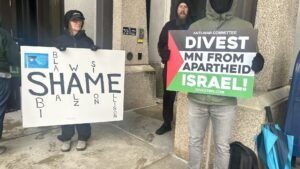

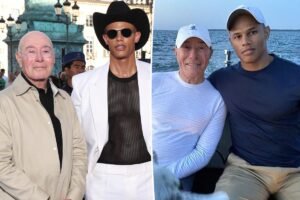
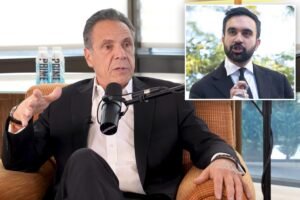



Post Comment